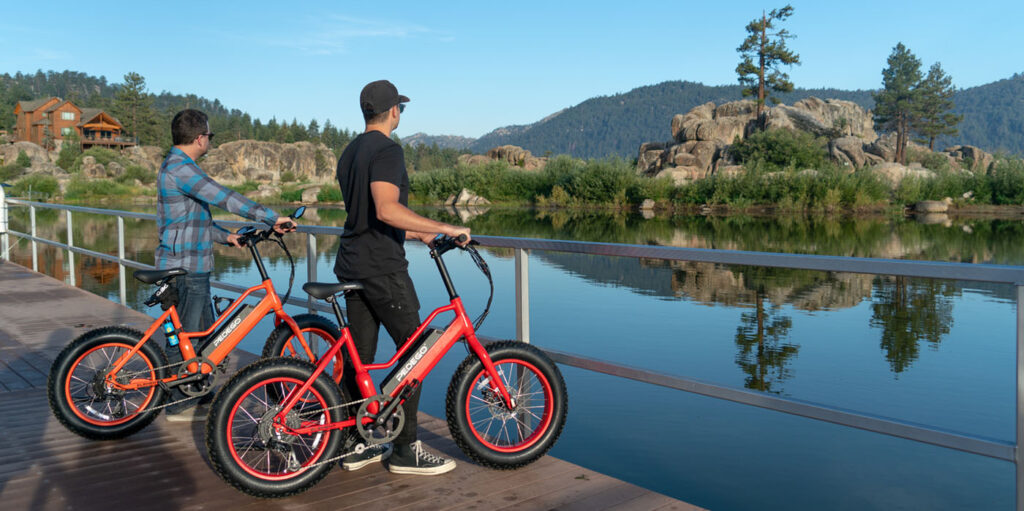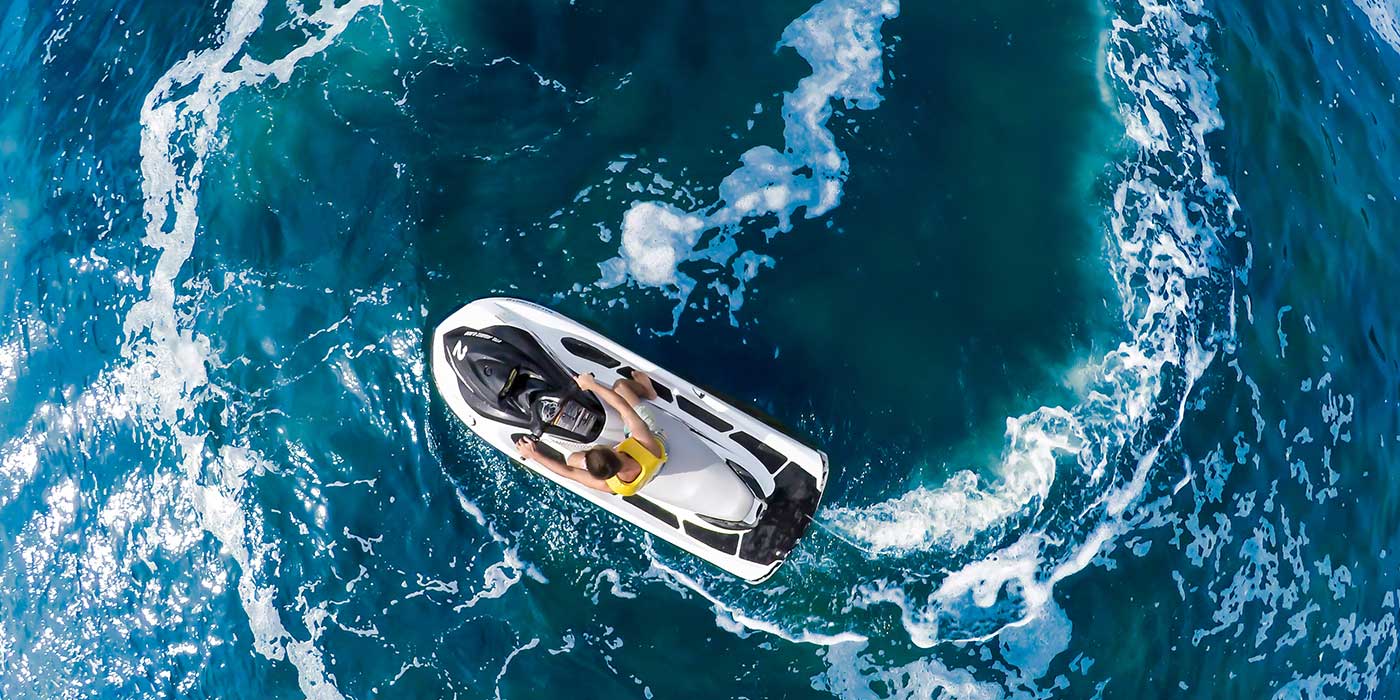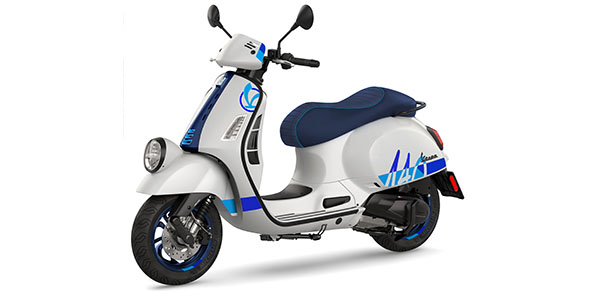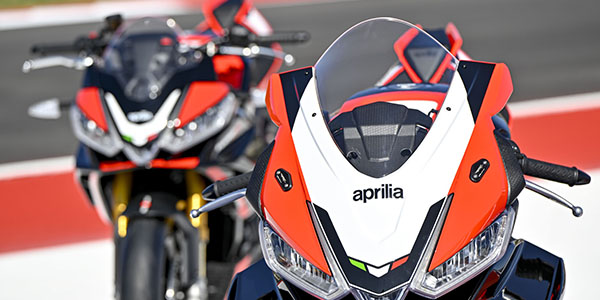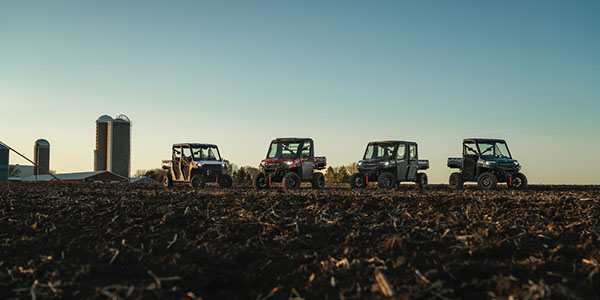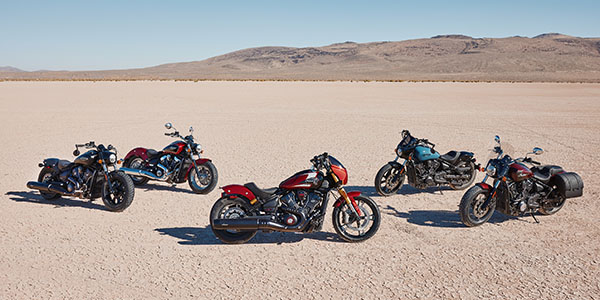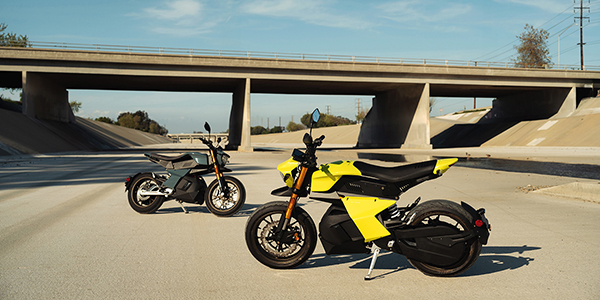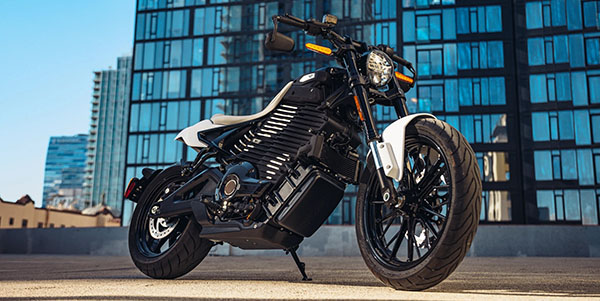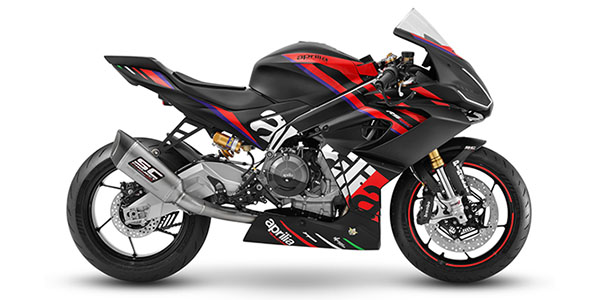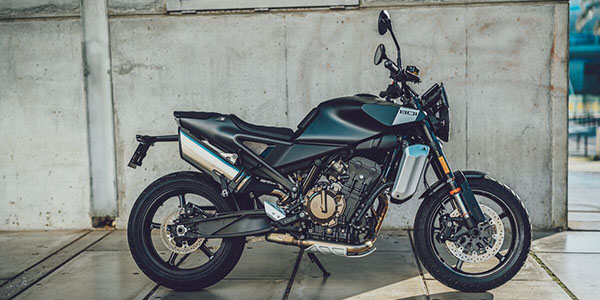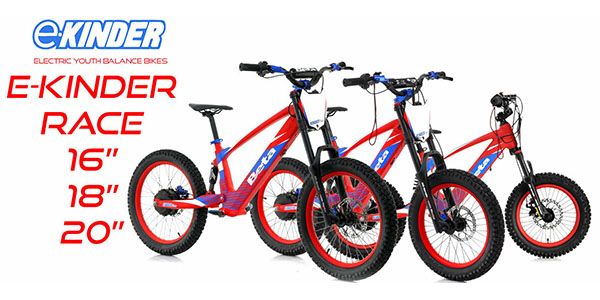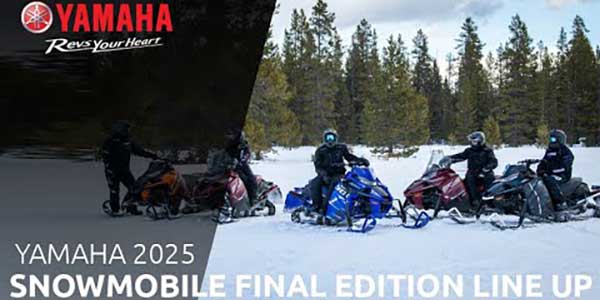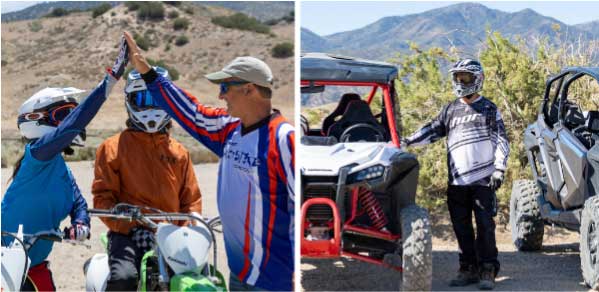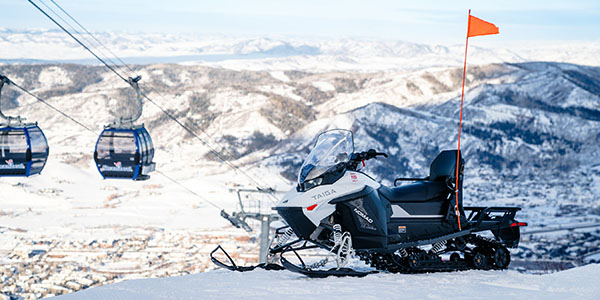Don DiCostanzo, founder and CEO of Pedego Electric Bikes, was used to being the black sheep of the bicycle industry. Traditional bike shop owners want nothing to do with electric interlopers, and he often felt shunned at the bicycle leadership conferences he attended.
“I was always persona non grata there; nobody wanted to talk to the electric bike guy,” DiCostanzo says.
However, the conferences were naturally put on hold for a couple of years due to the pandemic. When they started again this year, it came as something of a surprise to DiCostanzo that the entire atmosphere had changed.
“I was the smartest guy in the room when I went this year,” he says. “Now, all they talked about was electric bikes.”
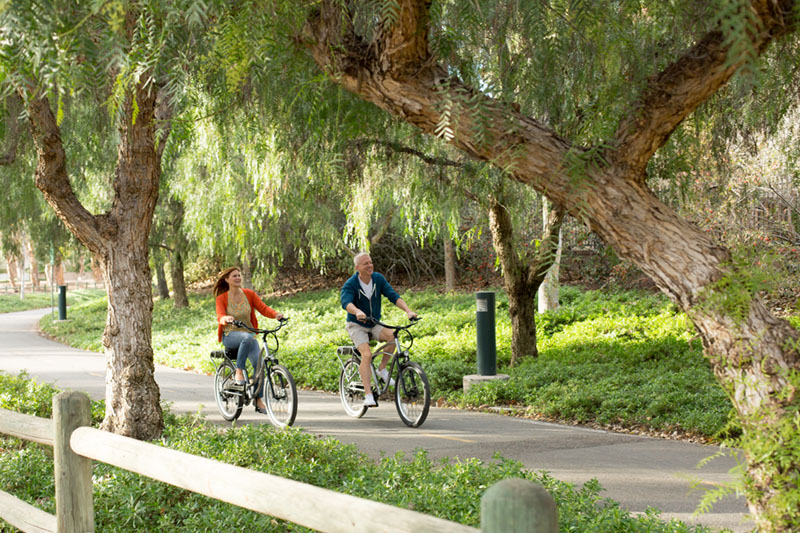
Photo credit: Pedego Electric Bikes
Not only did the pandemic rev up the motorcycle and powersports industry, but it also jumpstarted the consumer evolution from traditional bikes to electric bicycles. But, as with any early innovator, DiCostanzo hopped on the electric bicycle train years before it became popular to do so, meaning he was well-poised for the flood of consumer demand.
Climbing the Hill
DiCostanzo credits the beginning of his business in electric bicycles to when he bought one online in 2006 for the sole purpose of getting himself up a hill. Although he claims the bike was “junk,” it served its purpose, and he realized there was potential in this product. He did his research, found out no one was selling electric bicycles in Southern California and decided to be the person to start.
In 2007, he opened up a retail shop in Newport Beach that sold all sorts of electric vehicles: bicycles, skateboards, golf carts, mopeds and even a car – the Canadian Zenn (now defunct).
“Over that year, I found out that the real opportunity was in the electric bikes because people would buy them in pairs,” he notes. “People enjoyed cycling, and so I rented them and sold them as well.”
At the time, he struggled with product quality. However, in 2008, when he saw his first lithium-powered electric bicycle, he knew that was going to be a game changer. According to DiCostanzo, the bikes he had been selling up to that point used lead-acid batteries “that weighed 30 pounds [and] took you 10 miles.” They were replaced by lithium-ion batteries “that weighed 10 pounds and took you 30 miles.”
That same year, he sold his shop and started Pedego with the aim to become the ubiquitous brand for electric bicycles. Of course, as with any startup, he faced no shortage of challenges – the primary one being product awareness.
“To be honest, we struggled for several years because nobody got what electric bikes were,” DiCostanzo says.
He tried everything to sell the bikes – home shopping parties, selling bikes directly and going through moped and bike shops. Unfortunately, while he had some success with moped shops, they were more focused on selling their primary products. Bicycle shops wanted nothing to do with motorized conveyances. DiCostanzo didn’t give up.
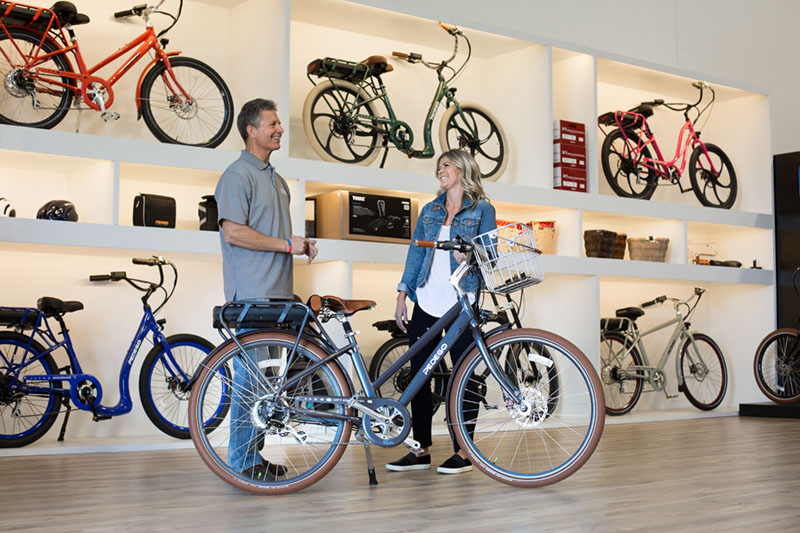
Photo credit: Pedego Electric Bikes
“Pedego was born on the idea that there was a niche in the marketplace that the traditional industry chose to ignore until they couldn’t any longer,” he says. “The main reason people don’t buy bicycles today is a four-letter word called ‘hill.’ The other four-letter word in a non-hilly area is ‘wind.’”
Just as the pandemic made more people aware of powersports, so too did it open peoples’ eyes to electric bicycles, thus catalyzing an evolution. The success of these products is apparent in Pedego’s growth over the last couple of years. In early 2021, Pedego had about 125 stores across North America; over the year, it added 65 shops, and today it has over 210. DiCostanzo plans to open the same number of shops this year, and in fact, 30-40 more are currently in the pipeline for the rest of 2022. His end goal is to open 1,000 stores.
“We believe that we want any customer to be within 20 minutes of a Pedego store, driving time … as long as they’re in a populated area,” DiCostanzo explains.
Thus far, the company appears to be on track. Pedego has a presence in 42 states and four other North American countries. The bikes have proven more popular in certain areas of the U.S. than others, namely California (the company’s home state), Florida and Colorado, but Pedego is working to get the word out.
One unique way Pedego markets itself is with a tour bus that goes around the country visiting its stores and hosting customer appreciation days. This year, the tour is going to make 100 stops. Of course, tours like these aren’t possible without support from both the company and its franchisees.
A Passionate Franchise
Pedego stores are all independently owned and operated under a licensed agreement. As a result, Pedego stores only sell Pedego electric bikes, and in return, the Pedego brand does not set up any other retail distribution in the agreed upon market areas.
“It’s an exclusive distribution agreement in a specific market, and it’s worked fabulously, because these startup costs are relatively low and … we’ve got passionate people representing our brand,” DiCostanzo says.
Pedego looks for partners who will be “dedicated, committed and passionate,” according to DiCostanzo. As it turns out, most of the owners are previous customers who fell in love with the bikes while renting them at another Pedego store and want to share them with their marketplaces.
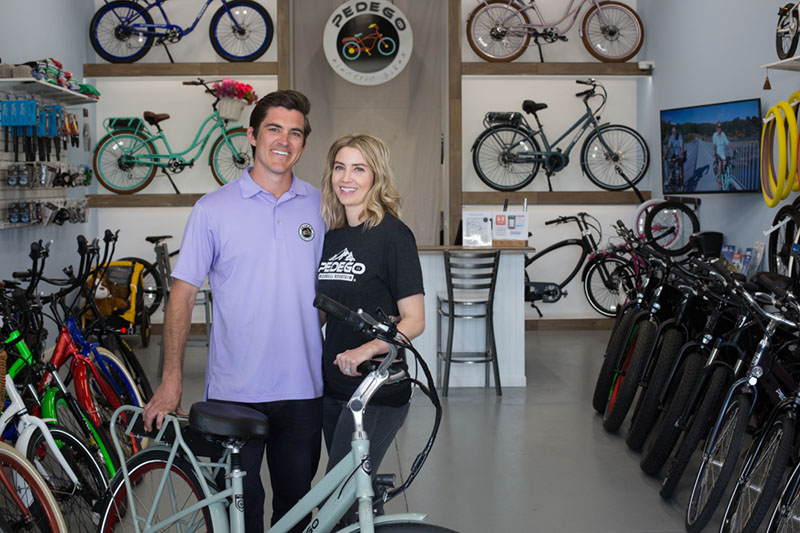
Photo credit: Pedego Electric Bikes
Renting is a key part of the Pedego business model. DiCostanzo notes that electric bicycles bought online are usually difficult to return if a buyer tries one out and is unsatisfied. Therefore, he always recommends potential buyers first rent Pedego electric bikes to determine if they’re the right fit.
Another reason Pedego only allows dealers to sell its brand of bikes comes from DiCostanzo’s earlier work with shops that predominately sold other types of vehicles. They didn’t focus as much on selling the Pedego electric bikes, so it didn’t work out. He also likens Pedego’s current approach to that of Harley-Davidson’s. You don’t go to a Harley-Davidson store to buy anything other than a Harley. As such, what DiCostanzo looks for in new Pedego entrepreneurs is the advice he offers to motorcycle and powersports dealers looking to partner with electric bicycle companies – be dedicated, committed and passionate about them!
Commitment to the bicycle is a must, according to DiCostanzo. After all, an electric bicycle customer is completely different from an electric motorcycle customer. For instance, he says, it’s intimidating for a customer that’s never bought a motorcycle to go to a motorcycle shop; conversely, it’s intimidating for someone who hasn’t bought a bike in 20 to 30 years to go to a bike shop.
“It takes a dedicated facility, a dedicated store,” DiCostanzo notes. Anything less, and the partnership will not reach its full potential.
The Revolution Will Be Global
When DiCostanzo opened his store in 2007, business was slow for him. The next year, the Great Recession hit, triggering inflation, high gas prices and a sluggish economy.
“Sounds like today, right?” DiCostanzo quips. But, contrary to many businesses at the time, Pedego had the last laugh. “Well, business took off, and now I’m doing it all over again because … I’ve already seen this movie, and I know how it ends, and it ends well. A lot of people will now look to get alternate forms of transportation and replace their car because of the expense of owning and operating an automobile.”
DiCostanzo admits that since most of his stores are located in the suburbs, his customers are predominately recreation-focused rather than transportation-focused. However, he doesn’t think that will stop people from looking for alternate ways to get where they’re going.
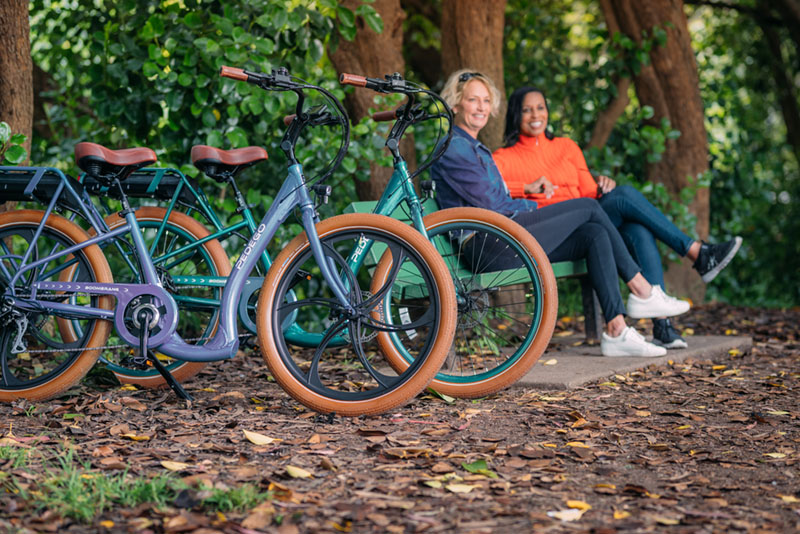
Photo credit: Pedego Electric Bikes
DiCostanzo finds that the main thing customers are looking for is a comfortable bike. For that reason, Pedego produces models with suspension forks and/or suspension seat posts as well as fat, cushy tires to make a smoother ride. In addition, Pedego bikes offer both options for pedal assist and throttle.
In fact, American consumers have the option to choose between pedaling or using a throttle in part thanks to DiCostanzo’s efforts. According to DiCostanzo, throttles are banned on electric bicycles in Europe, and given how pervasive the vehicles are on that continent, European companies came to the U.S. thinking they could take over the industry and get the same laws passed. They also wanted to limit the bikes’ top speed to 15 mph as well as not require a minimum rider age or helmets. DiCostanzo fought with them in the California legislature on all of those accounts. The result was the institution of a three-class system for electric bicycles – one with only pedal-assist, one with only a throttle and one that’s pedal-assist but goes faster than the other pedal-assist class.
Giving customer options usually proves beneficial to any market strategy, and those options prove useful when demand spikes.
“Global growth for electric bikes is off the charts,” DiCostanzo says. “Europe is way ahead of us. They’ve got a 60%-70% penetration rate compared to regular bikes, and we’re only at about 5%. What that means is we’ve got a lot of head room.”
DiCostanzo quotes industry figures suggesting that 500,000 electric bicycles were sold worldwide in 2020. That number jumped up to 800,000 in 2021. However, with 17 million traditional bikes being sold every year, DiCostanzo sees huge protentional for the electric bicycle industry. After all, he believes one day, virtually every bike sold will have a motor on it.
“I believe that we’ll go from 800,000 to 17 million [electric bikes sold] over the next five or 10 years,” DiCostanzo concludes. Of course, only time will tell if his projections come true, but as someone who had the foresight to adopt electric bicycles over a decade before they blew up in popularity, it wouldn’t be wise to discount the electric bike guy in the corner of the room just yet.
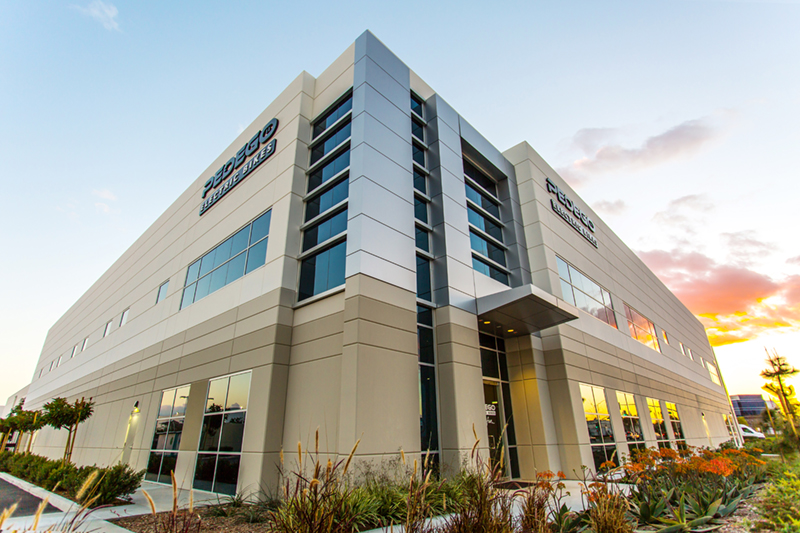
Photo credit: Pedego Electric Bikes

